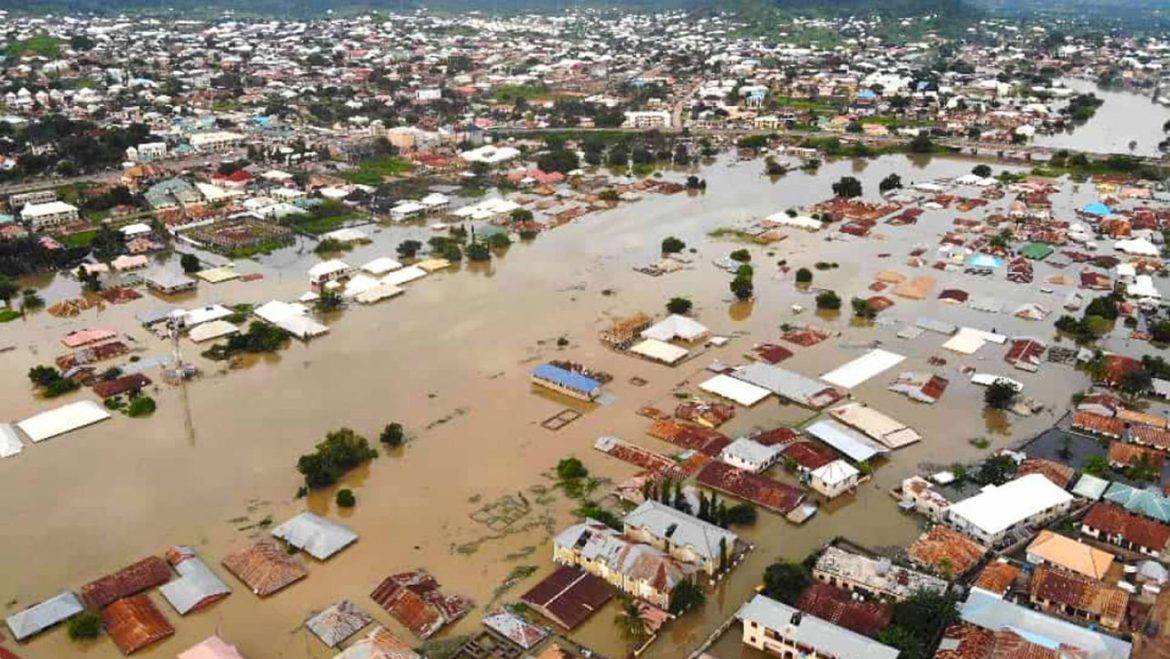Analysts have said that Nigeria’s inflation rate looks set to surge on the back of the floods that ravaged many parts of the country for about three months.
The figures from a BusinessDay analysis of the Consumer Price Index report for October 2022 published by the National Bureau of Statistics (NBS) on Tuesday showed that on a month-on-month basis, the inflation rate for October was 1.24 per cent, 0.53 per cent lower than 1.77 per cent in August but rose by 5.09 per cent points to 21.09 per cent in October from 15.99 per cent on a year-on-year basis in the same period last year.
The NBS report attributed the monthly decline to the present harvesting season.
“Over the past three months, there has been a decline in headline inflation on a month-on-month basis due to a decline in the changes in the food index relative to the reference month index,” it said.
Read also: COP27: Brazil’s president-elect, other world leaders support UN climate talks
Food inflation, which constitutes 50 per cent of the inflation rate, also recorded a monthly decline of 1.23 per cent in October, a 0.82 per cent drop from 2.05 per cent in June. The food inflation rose to 23.72 per cent year-on-year in October from 23.34 per cent in the previous month.
In a recent report, analysts at Financial Derivatives Company (FDC) said typically, headline inflation and food inflation taper from September to November every year, reflecting the core harvests that occur in the period.
“However, the recent floods in the major food-producing states will rob the country of the price moderation effects of the harvest season,” they added.
This year’s flood incidents, which started in September, have destroyed 70,566 hectares of farmland, damaged 45,249 houses and displaced over 1.4 million Nigerians, with about 600 persons reported dead.
The floods, described as the worst in a decade, have been attributed to the release of water from the Cameroonian Lagdo Dam, which affected Nigeria because of its lack of a flood defence mechanism. The Dasin Hausa Dam, which should have been built 40 years ago, would have cushioned the effect of whatever came from Lagdo.
Data from the United Nations Office for the Coordination of Humanitarian Affairs, World Food Programme, and Telimer Research show that Nigeria has the largest number of people (3,480) hit by flooding among 19 African countries.
A large part of this year’s harvest was lost to the worst floods in Nigerian history for more than a decade, said Ikemesit Effiong, head of research at SBM Intelligence.
“The effect of those losses will begin to be felt as the Christmas season enters its high season. Nigeria will set a few more inflation records till at least the first half of 2023,” Effiong said.
David Ibidapo, head of market data and research at AFEX Commodities Exchange, said the country would only start seeing the effects of the floods in December or January 2023, because processors or big buyers of commodities who typically come to the markets will see low supply.
As the rise in food prices continues, the compensation of employees (wages and salaries) fell to 3.93 per cent in the second quarter of 2022, the slowest growth since Q3 2020, from 6.48 per cent in the previous quarter and this means consumers will grapple with the rising cost of food items in the face of dwindling income.
Story was adapted from Business Day.
